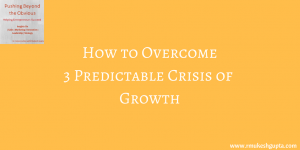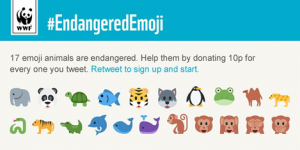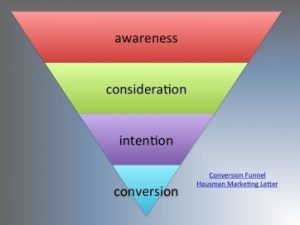
ijmaki / Pixabay
Has your open rate plummeted? Are you wondering whether you should give up on email marketing altogether?
It could be that email marketing is the problem. More likely, it’s your approach.
Before you throw in the towel and assume that email marketing is dead, try implementing these tips.
Is Email Marketing Really Dead?
At first, it’s easy to understand why people think there’s no point in using email marketing anymore. After all, average email open rates decreased slightly in 2020 to about 21.3 per cent. By contrast, from 2015 to 2018, they held steady at about 24 per cent.
If you’re seeing your open rates for newsletters and marketing emails starting to drop, you might assume that they’re going to keep doing so. If history is any indication, though, don’t necessarily mean that email marketing is dead or that your efforts are in vain.
Remember, in the past, whenever there’s been a decrease in email open rates, it’s been followed by a significant increase. As marketers get smarter and change the way they handle their emails, open rates go back up and businesses are able to get back on track.
How to Write Better Marketing Emails
Email marketing definitely isn’t dead. However, if you want to see significant increases in open-rates, you need to change the way you write and format your marketing messages.
Listed below are 5 tips that will help you write better emails, the kind of emails that get opened and convert people from mere subscribers to paying customers:
1. Keep Content Simple
Do you want people to open and read your marketing emails? Furthermore, do you want them to follow through on your call-to-action? If so, you need to keep your content simple.
What do people do when they know that your emails are wordy and full of huge blocks of text? They stop opening them altogether.
Remember the basic rules of writing for the web when drafting email copy:
- Keep sentences short
- Limit complex sentences
- Use simple words and phrases
- Limit paragraphs to 3 sentences or fewer
- Use headings and bullet points to break up text and keep things organised
Keep emails simple from a design perspective, too. Don’t use tons of different colours and fonts. Avoid adding a bunch of images as well. This creates clutter and can slow down page load times.
2. Personalise, Personalise, Personalise
Personalisation can make a big difference to your email open rates.
What happens when people feel that you’re writing directly to them? They’re more inclined to actually click on and read your content.
If your emails feel generic and impersonal, a huge portion of your email list subscribers will likely end up deleting your messages without opening them. They might even go so far as to unsubscribe or send the emails straight to the spam folder.
How do you avoid this? Start by including each subscriber’s name in the email salutation. You may want to include it in the subject, too.
Personalise email content based on subscribers’ past actions as well. For example, you can encourage them to restock an item they bought a month ago, or remind them of something they added to their cart but didn’t pull the trigger on.
3. Write Clear Subject Lines
Great marketing emails start with great subject lines. Hundreds of billions of emails are sent daily. That means the average person has a lot of messages competing for their attention.
If you want to increase your open rates, you need to craft subject lines that encourage recipients to take action. Here are some tips that will help you do this:
- Use clear, easy-to-understand language (no long, complicated words)
- Limit subject lines to 50 characters or fewer
- Use verbs (“open”, “click”, “act now”, etc.)
- Avoid spam triggers (words like “cash” and “save” or writing subject lines in all caps)
- Use time-related words if applicable (“expires soon”)
- Include first names
Don’t be afraid to experiment with different styles. Pay attention to your data to see what kinds of subject lines get the most attention from your subscribers.
4. Use One Call-to-Action
Do you want to increase conversions? If so, you need to give your recipients a job to do after they read your copy.
A call-to-action (or CTA) is a must for marketing emails. Don’t go overboard by asking too much of your audience, though. Limit yourself to one call-to-action per email.
Whether you want your readers to visit your website, start shopping today, or download your free eBook, make your CTA clear and noticeable.
Readers shouldn’t have to search for your instructions. Put the button somewhere they’ll be sure to see it. Design it so it contrasts with the rest of the copy, too.
Don’t forget to add alt-text to your CTA button as well. That way, if the reader has blocked images, they’ll still know where to click.
5. Optimise for Mobile
Finally, make sure your marketing emails are optimised for mobile devices.
Approximately 46 per cent of emails are opened via mobile. Clearly, it’s important to make sure your audience can read your copy just as well on a mobile device as they can on a computer.
Test emails on mobile devices to ensure copy is readable and features plenty of white space. Make sure images load quickly, too, and don’t get cut off. If this is a problem, try reducing the file size.
Make sure your CTA buttons are larger than 45-57 pixels as well. This size translates to about 1.6-2 centimetres, which is the size of the average adult finger. Make the button easy to push and recipients will be more likely to follow through.
Level Up Your Email Marketing Strategy
As you can see, email marketing is not dead. You just need to write better, more engaging emails.
Keep the tips listed above in mind as you work to improve your strategy. They’ll help you to increase your open rates, convert more customers, and keep your business alive.
Digital & Social Articles on Business 2 Community
(39)
Report Post






